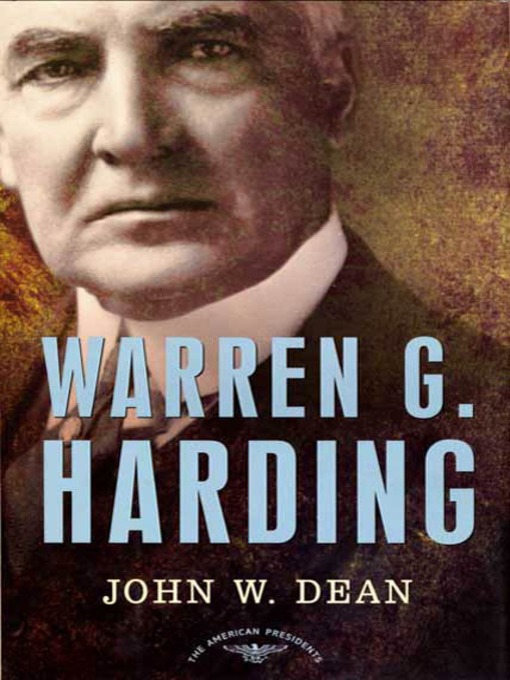President Nixon's former counsel illuminates another presidency marked by scandal
Warren G. Harding may be best known as America's worst president. Scandals plagued him: the Teapot Dome affair, corruption in the Veterans Bureau and the Justice Department, and the posthumous revelation of an extramarital affair.
Raised in Marion, Ohio, Harding took hold of the small town's newspaper and turned it into a success. Showing a talent for local politics, he rose quickly to the U.S. Senate. His presidential campaign slogan, "America's present need is not heroics but healing, not nostrums but normalcy," gave voice to a public exhausted by the intense politics following World War I. Once elected, he pushed for legislation limiting the number of immigrants; set high tariffs to relieve the farm crisis after the war; persuaded Congress to adopt unified federal budget creation; and reduced income taxes and the national debt, before dying unexpectedly in 1923.
In this wise and compelling biography, John W. Dean—no stranger to controversy himself—recovers the truths and explodes the myths surrounding our twenty-ninth president's tarnished legacy.
- Available now
- Sweeten Up Your Holidays!
- New eBook additions
- Graphic Novels, Manga, and Superheroes!
- New kids additions
- New teen additions
- Most popular
- Try something different
- Resources for Libraries
- New Russian Language Books
- New Spanish Language Books
- "Se me enchina la piel" - Libros espantosos para adultos
- See all ebooks collections
- New audiobook additions
- Full-cast audio
- Great Audiobook Narrators!
- New teen additions
- New kids additions
- Available now
- Most popular
- Try something different
- See all audiobooks collections
- Diverse Families
- Family Road Trip
- Reese Witherspoon's Book Club Reads
- The 100 Best Teen Books of All Time!
- Spies, Lies & Political Intrigue
- Great Adult Books for Teens!
- Transgender/nonbinary reads
- What's Next? Getting to a New Normal
- Twisty Psychological Thrillers
- Need a Laugh?
- Learn English
- African-American Romance
- Burnout: Signs, Symptoms and Strategies
- See all featured collections collections




